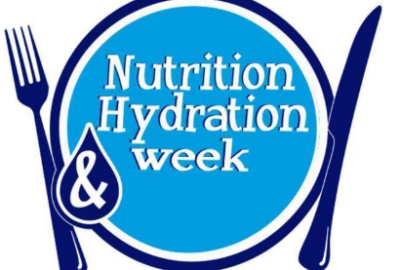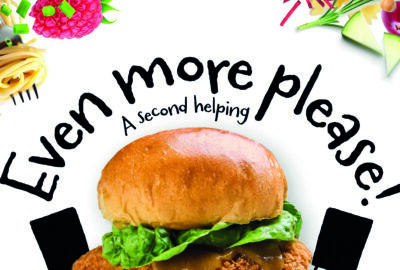Ahead of his time preaching veggie love, food sustainability and the grow-your-own gospel before it became popular, Hugh Fearnley-Whittingstall has been a mainstay on our television screens for a quarter of a century. We caught up with Hugh to discuss his new book – How to Eat 30 Plants a Week, the latest happenings from River Cottage and the biggest bees in his bonnet.
Tell us how and why you first became interested in food?
The seeds for my love of food were firmly planted at home with my mum in the kitchen. It mainly kicked in when I moved out of London in 1970. I was five years old and my mum and dad did the classic downsizing and moved to the country. My mum was already a good cook, but my dad inherited a vegetable garden in the house we moved to and that was a gamechanger.
I remember being very excited to move to the country. If it had been a couple of years later, I may have been a hardened urban urchin. As it was, I was delighted to embrace the outdoor life. I was also a very energetic and restless child. If I couldn’t be outside, mum would stick me on a chair with a pinny and she started me cooking. At the beginning, it was sweets and treats and biscuits and cakes, as kids love to cook the sweet stuff. But I took to it like a duck to water and even though I was still an outdoor kid, as soon as the weather turned, it was – what are we cooking mum? By the age of 7, I was making the desserts for my mum’s 1970s dinner parties. I learnt all sorts of classics like profiteroles, chocolate rum gateau, pineapple mousse made from tinned pineapples – all those 70s’ classics – I was all over them. I just loved it and I have never stopped cooking since.
When and how did food become a career?
It was never a hard decision really. When I left university, I was very taken by the world of wildlife and conservation in Africa. I took my love of food with me, and my friend Linden and I would cook on an open fire on our trip. We learnt how to make bread in a Dutch oven.
On arriving back, I was still fired up by wildlife and conservation, but I needed a job. My plan was to try and write a book about the challenges to conservation in Africa, but I was penniless. A friend was working at River Café as a waiter – I did but I was a little chaotic as I had had no formal training. I also felt slightly indulged in the River Café kitchen, but I learnt an awful lot.
Eventually the lack of experience probably started to tell. You may have heard the story, but I got fired for being too messy. At that point I had to make some hard decisions. My return to Africa was looking bleak so I started writing about food and pitching ideas to newspapers and magazines. I did this for the next 5-10 years and I loved it.
I realised the synergy between food, sustainability, and conservation. The grounding theme across both is that we need to look after nature. We need to care about where our food comes from and make sure it is sustainably sourced. That’s the best way to nurture the planet and ourselves. What is food if not harnessing nature. It’s what we have always done since the days of hunter gathering.
Your new book is ‘How to Eat 30 Plants in a week’ – do you still eat meat and fish?
I’m still an omnivore and River Cottage is omnivorous. The latest book isn’t vegan, but vegetables are the star of the show, although there are lots of omnivorous recipes. There is a chapter on meat and one on fish. In every case, it’s dished up with a load of delicious plants.
Meat and fish are wonderful but they are very tyrannical ingredients. Especially for chefs – they tend to hog all of the attention. The minute you put them to one side and start lavishing attention on the plants, wonderful things happen. You soon realise that there aren’t many vegetables you can’t BBQ or roast or treat in a similar way to meat or fish. The honourable treatments we used to reserve for meat or fish can easily be catapulted onto our favourite vegetables. A bit of charring and searing heat can open all sorts of caramelised, sticky sweet flavours. In the end, the world of plants is a much richer source of diverse flavours, textures and excitement than the world of meat and fish.
What should we be eating more of?
The store cupboard plays a big role. We don’t explore pulses enough, which are nutritious, cheap and very versatile. You could say they’re a bit bland, but blandness can be a quality to tame or lap up other flavours. They can also be functional to thicken. Nuts and seeds are also underused ingredients. We just don’t use them enough and there are so many opportunities when baking. Yes, throw in some chocolate chips but load up with some nuts and seeds as well. Something like dukkah is also fantastic to have to hand – bash up some nuts, spices and seeds and you have a great sprinkle for roast veggies or it can go on a soup. Dukkahs and pestos are superb to make and we shouldn’t be afraid of taking them away from the conventional recipes. I make pesto with all sorts of nuts, seeds and seasonal plants like nettle and wild garlic.
Do you have any key goals for 2024?
We want to continue to welcome people to River Cottage and we’re constantly exploring and launching new courses all the time. We’re blessed to have a wonderful team of tutors, guest lecturers and in-house chefs. This includes people like John Wright and Gill Mellor who have been with River Cottage since the good old days. We also have the brilliant Rachel de Thample, who is our fermentation guru, and Emma Gunn, who alongside John Wright is a wonderful teacher of foraging and wild foods.
Our restaurant has also moved from the middle of Axminster to the farm, so what used to be our office building is now our River Cottage restaurant and store. It’s open 7 days a week from spring and it’s great to be able to welcome people and show our passion for local ingredients. I’m also teaching a couple of times a month at the cook school, which I love, and we also have our online cookery school, which is a diploma standard course. The tutors and I actually interact with the students online to give feedback, which is great fun.
If you were Prime Minister, what would you change?
It’s very top level and may seem very basic but I think our Prime Minister needs to say that food matters. I want them to acknowledge that food is the primary source of a person’s wellbeing and food choices are so vital. It sounds quite simple, but governments don’t say it.
What is your favourite meal of the day?
I have four kids with one of them still at home and the others still visiting often enough that we can get around the table together as a family. That evening meal is the one. Usually something from the garden and even leftovers reinvented. Even if I have been cooking all day, I still look forward to getting in the kitchen and eating with the family. That moment when we come together – 7-7.30pm – has always been special, is still special and I intend to keep it special for as long as I can prod something around a frying pan.



